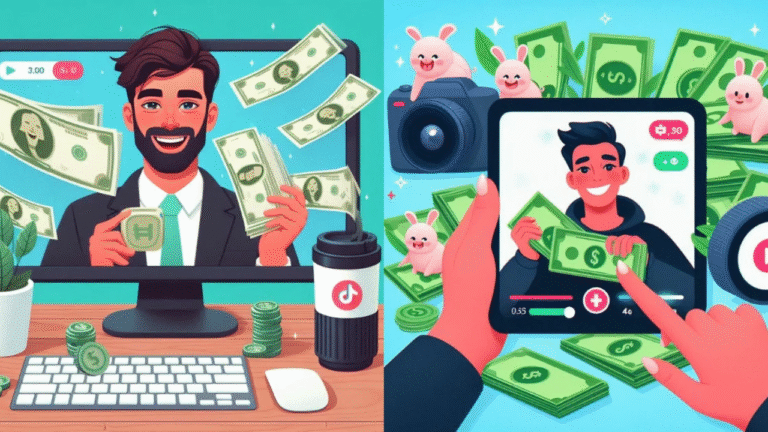Is Facebook Still Relevant in 2025? Shocking Data Revealed
Facebook, once the king of social media, has been around for over two decades. From college campuses in 2004 to becoming a global platform used by billions, its journey has been nothing short of remarkable. But as we enter the middle of 2025, a critical question emerges — is Facebook still relevant?
With the rise of Instagram Reels, TikTok, YouTube Shorts, X (formerly Twitter), and countless new platforms, some believe Facebook is fading into digital history. Others argue that it’s quietly thriving — just in different ways. So, what is the truth?
We did the research, examined the numbers, and took a closer look at how people actually use Facebook in 2025. The results might surprise you.
Facebook by the Numbers in 2025
Despite the media buzz about its decline, Facebook remains one of the most-used social platforms in the world. Here are some real-time statistics based on the latest available industry reports:
- Over 2.8 billion monthly active users
- More than 1.9 billion daily active users
- Used by over 70 percent of internet users aged 25 to 44
- Dominates in emerging markets like Africa, Southeast Asia, and South America
Facebook may not be the trendiest app anymore, but in terms of raw user base and daily engagement, it’s still a giant — especially among adults, professionals, and families.
Who Uses Facebook Today?
The Facebook of 2025 is very different from what it was ten years ago. It is no longer the go-to platform for teenagers or young adults. Those demographics have largely migrated to faster, trend-driven apps like TikTok and Snapchat. But this does not mean Facebook is irrelevant — it just means it serves a new role.
1. Adults Aged 30+
Many professionals, parents, and business owners still use Facebook every day — not just to scroll, but to engage in groups, shop on Marketplace, follow pages, and stay in touch with distant friends or family.
2. Small Business Owners
Facebook’s Business Suite remains one of the easiest tools to manage local advertising, customer reviews, messages, and bookings. Small brands still rely on it for cost-effective marketing and customer engagement.
3. Communities and Groups
One of Facebook’s strongest features in 2025 is its groups. From parenting communities and health support networks to local buy-and-sell pages and professional circles, Groups continue to be highly active.
4. Emerging Markets
While some parts of North America and Europe are slowly drifting toward other platforms, countries in Asia, Africa, and Latin America still view Facebook as a primary social tool.
Facebook’s Strength: Community Infrastructure
Unlike fast-scrolling apps focused on trends, Facebook in 2025 thrives as a digital infrastructure for communication. It is where people plan events, discuss real-life issues, buy products, read local news, and engage in meaningful conversations.
Facebook is no longer the cool hangout. It is the town hall, the bulletin board, and the small business district all rolled into one.
This shift means Facebook has quietly become more functional — even if it’s no longer fashionable.
Why Some People Say Facebook Is Dying
There’s no denying that Facebook has lost cultural influence among younger users. Gen Z and Gen Alpha rarely use Facebook as their first social choice. TikTok, Instagram, and other platforms offer shorter, trendier, more entertainment-driven content.
Here are the main reasons people believe Facebook is fading:
- Lack of innovation in content style
- Older user base
- Privacy controversies and data misuse history
- Cluttered interface with too many features
- Shift to mobile-first platforms that feel faster and fresher
But even with these criticisms, Facebook’s evolution into a utility platform gives it staying power. It might not dominate headlines, but it remains quietly essential for many.
Shocking Fact: Facebook Marketplace Is Booming
One of the most surprising developments is the explosive growth of Facebook Marketplace. In 2025, Marketplace competes with Craigslist, OLX, and even eBay in certain regions.
People use it not only for casual buying and selling but also for serious transactions like renting apartments, booking local services, and launching side hustles. Its integration into the Facebook app makes it easy to use — and hard to ignore.
For millions of users, Facebook is not just a social platform — it’s a marketplace, business tool, and community center.
Facebook vs. Instagram, TikTok, and Others
Let’s break it down:
| Platform | Primary Strength | Main Audience | Usage Pattern |
| Groups, Marketplace, News | Adults 30–60 | Utility + Communication | |
| Visual content, Reels | Ages 18–35 | Entertainment + Branding | |
| TikTok | Short video content | Ages 13–29 | Entertainment + Trends |
| X (Twitter) | News + Opinion | Professionals, media | Real-time commentary |
Each platform serves a different purpose. Facebook’s relevance lies in function more than fashion. It doesn’t compete directly with Instagram or TikTok — it supports different needs.
Facebook’s Role in the Future of Digital Communication
Meta (Facebook’s parent company) has made big investments in artificial intelligence, virtual reality, and the metaverse. Though some of those ventures (like Meta’s early VR push) have seen mixed results, the company is still evolving.
In 2025, Facebook isn’t the flagship product of Meta anymore — but it remains the foundation. It’s the bridge between older users and new tech. While the future may involve more immersive platforms, Facebook continues to serve as the default digital “home base” for billions.
Should You Still Use Facebook in 2025?
Yes — if it meets your goals. Facebook is still incredibly useful for:
- Networking with local professionals or communities
- Running or promoting a small business
- Staying updated on real-world events and family news
- Participating in niche communities or learning spaces
- Buying, selling, and advertising
If you’re trying to go viral with Gen Z, it might not be the best fit. But if you’re looking to build a stable presence, engage with loyal audiences, or maintain a digital identity that spans years — Facebook still has value.
Final Thoughts
So, is Facebook still relevant in 2025?
Absolutely — but not in the way it used to be. It may no longer be the trendiest or most exciting platform, but it has evolved into something more stable and practical. Facebook is now the backbone of community-based communication, local business networking, and group-driven interaction.
While younger users may prefer newer platforms, Facebook remains a pillar of the digital ecosystem — quietly serving billions every day.
Relevance, after all, is not always loud. Sometimes, it’s the consistent, quiet presence that proves the most powerful in the long run.






